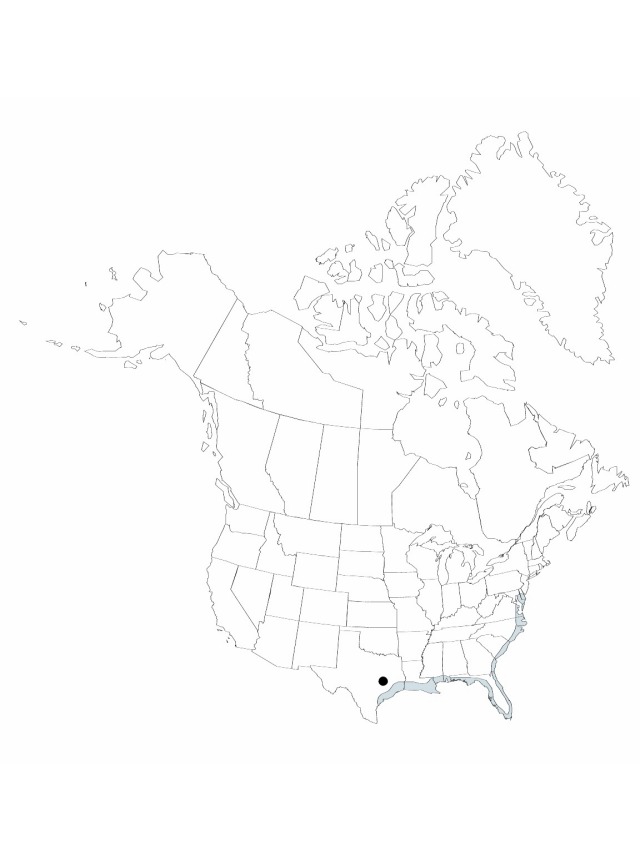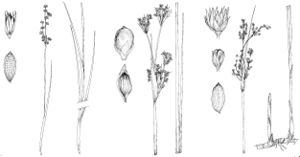Difference between revisions of "Juncus roemerianus"
Linnaea 22:348. 1849.
imported>Volume Importer |
imported>Volume Importer |
||
| Line 51: | Line 51: | ||
|publication year=1849 | |publication year=1849 | ||
|special status=Illustrated;Endemic | |special status=Illustrated;Endemic | ||
| − | |source xml=https:// | + | |source xml=https://bitbucket.org/aafc-mbb/fna-data-curation/src/2e0870ddd59836b60bcf96646a41e87ea5a5943a/coarse_grained_fna_xml/V22/V22_264.xml |
|genus=Juncus | |genus=Juncus | ||
|subgenus=Juncus subg. Juncus | |subgenus=Juncus subg. Juncus | ||
Latest revision as of 20:30, 5 November 2020
Herbs, perennial, 5–15 dm. Rhizomes long, thick, scaly. Culms gray-green, 2–5 mm diam. Cataphylls 2–5. Leaves basal, 1–3; auricles absent; blade terete, 40–80 cdm × 1.5–2.5 mm. Inflorescences sympodial or appearing lateral, glomerules to 150, each with 2–6 perfect or pistillate flowers, congested to open, 4–20 × 5–10 cm; primary bracts terete, longer than inflorescence. Flowers: tepals pale brown, 2.5–3.3 mm, apex acuminate; outer series acuminate; inner series slightly shorter, acutish; stamens 6, sometimes rudimentary, filaments 0.2–0.7 mm, anthers 1.3–2.5 mm; style 0.3–1 mm. Capsules brown, 3-locular, ovoid to oblate, 1.7–3 × 1.3–1.6 mm, mostly distinctly shorter than perianth, apiculate. Seeds dark brown, ellipsoid, 0.4–0.6 mm, not tailed.
Phenology: Flowering and fruiting spring–early fall.
Habitat: Coastal tidal marshes in dense zonal stands
Distribution

Ala., Del., D.C., Fla., Ga., La., Md., Miss., N.C., S.C., Tex.as, Va.
Discussion
Selected References
None.
